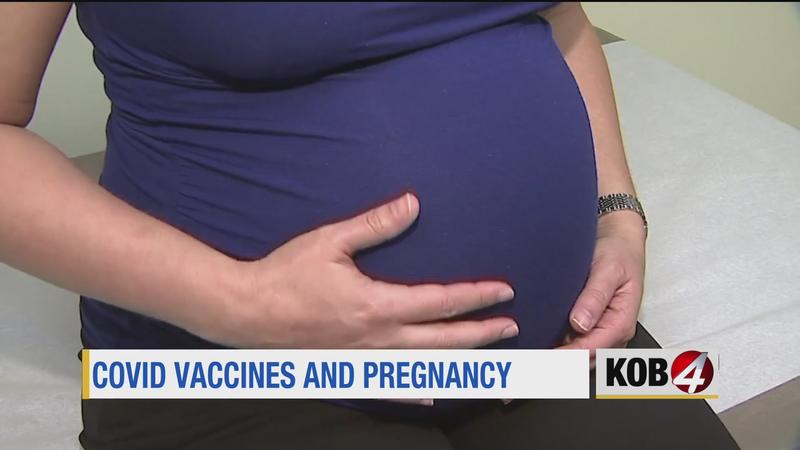Expert weighs in on safety of COVID-19 vaccines for pregnant women
ALBUQUERQUE, N.M. — As COVID-19 vaccines become more widely available, doctors are learning more about their effects on people — specifically pregnant women.
Dr. Michael Ruma, a maternal-fetal medicine specialist at the Perinatal Associates of New Mexico, shared the scary truth of coronavirus in expectant mothers.
“We know a great deal about the evils and the harms that a COVID infection can cause in a pregnancy,” he said. “The standard death rate in pregnancy is about 1 in 8,000. If we look at the data that we have in New Mexico, as well as published data, that rate might be as high as 1 in 100 if you get COVID-19 as a pregnant woman.”
The odds hit close to home for Dr. Ruma.
“Our practice, we’ve had just over 200, 250 patients, and we’ve had one death of a pregnant woman here as well, and I know other facilities in the state have also had that experience,” he said.

Dr. Ruma, alongside experts worldwide, ask pregnant women to arm themselves against the virus with a vaccine. He said Pfizer and Moderna had less than 10 pregnant women in clinical trials, so the new research is coming from expectant mothers who received the vaccine when it rolled out across the U.S. and other countries.
“There are over 100 articles already in three months written about vaccination with COVID vaccines in pregnancy,” he explained. “Within our practice, for certain, at least several hundred pregnant women that I have interacted with have elected to receive the vaccination. They have not had any significant side effects or any adverse outcomes associated with their pregnancy that we’re aware of today.”
Studies show no harm to the fetus or newborns from the Pfizer and Moderna vaccines, so far, according to Dr. Ruma.
“Because of that research, it is highly unlikey that any of the messenger-RNA that’s given in a vaccine to a pregnant woman is actually entering the fetus or the baby in utero,” he added.
Dr. Ruma said a recent publication shows there is evidence that mothers who took the Pfizer or Moderna vaccine passed on the antibodies they developed to the baby. However, he mentioned they’re not yet sure if the antibodies protect the baby.
If the antibodies offer protection against the virus, Dr. Ruma said babies could have that protection six to eight weeks after birth. More protection could come while breastfeeding for three to maybe six months.
“If we had a suggestion in pregnancy, Pfizer and Moderna may be the ones that are more confidence-building for a pregnant woman electing or thinking of choosing a vaccination during pregnancy. Johnson & Johnson — experts around the world and the country definitely think it’s safe — but there is less data specifically on that vaccine based on its most recent release,” he said.
However, people can’t pick and choose a vaccine. Dr. Ruma said pregnant women should take advantage of whichever vaccine they are offered because each vaccine can offer protection and help save lives.